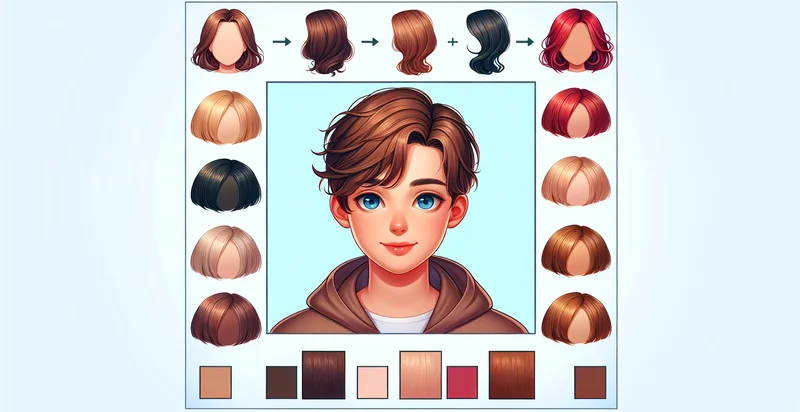Identify which character from Martin you look like
using AI
Below is a free classifier to identify which character from Martin you look like. Just upload your image, and our AI will predict which character you look like - in just seconds.

Contact us for API access
Or, use Nyckel to build highly-accurate custom classifiers in just minutes. No PhD required.
Get started
import nyckel
credentials = nyckel.Credentials("YOUR_CLIENT_ID", "YOUR_CLIENT_SECRET")
nyckel.invoke("which-character-from-martin-you-look-like", "your_image_url", credentials)
fetch('https://www.nyckel.com/v1/functions/which-character-from-martin-you-look-like/invoke', {
method: 'POST',
headers: {
'Authorization': 'Bearer ' + 'YOUR_BEARER_TOKEN',
'Content-Type': 'application/json',
},
body: JSON.stringify(
{"data": "your_image_url"}
)
})
.then(response => response.json())
.then(data => console.log(data));
curl -X POST \
-H "Content-Type: application/json" \
-H "Authorization: Bearer YOUR_BEARER_TOKEN" \
-d '{"data": "your_image_url"}' \
https://www.nyckel.com/v1/functions/which-character-from-martin-you-look-like/invoke
How this classifier works
To start, upload your image. Our AI tool will then predict which character you look like.
This pretrained image model uses a Nyckel-created dataset and has 20 labels, including Martin, Gina, Pam, Tom, James, Jenna, Stan, Drew, Tasha and Benny.
We'll also show a confidence score (the higher the number, the more confident the AI model is around which character you look like).
Whether you're just curious or building which character from Martin you look like detection into your application, we hope our classifier proves helpful.
Related Classifiers
Need to identify which character from Martin you look like at scale?
Get API or Zapier access to this classifier for free. It's perfect for:
- Personalized Marketing Campaigns: Businesses can utilize the character identifier to create targeted marketing campaigns based on consumers' perceived likeness to popular characters from the show "Martin." By engaging customers with relatable character-themed promotions, brands can increase engagement and drive sales.
- Social Media Engagement Tool: The identifier can be integrated into social media platforms, allowing users to share their results with friends. This fosters organic sharing and can enhance community engagement while promoting the show and its cultural relevance.
- Event Planning and Theming: Event organizers can use the character classification function to design themed parties or gatherings. By identifying guests' 'Martin' character likeness, planners can create tailored experiences, such as character-based activities, decorations, and even costumes.
- Character Merchandise Suggestions: Retailers could incorporate the identifier on e-commerce platforms to recommend character-themed merchandise. By understanding which character consumers resemble, businesses can suggest apparel, accessories, and collectibles related to those characters, enhancing the shopping experience.
- Personality Quiz Applications: The function can be integrated into quiz applications or websites, offering users a fun way to explore their personality traits. This can lead to deepened user engagement and increased traffic as people share their results and compare them with friends.
- Interactive Games and Experiences: Game developers can use the character likeness identifier within games based on "Martin." Players could undertake quests or challenges that reflect their identified character’s traits, providing a unique and personalized gaming experience.
- Cultural Studies and Analysis: Researchers and scholars can leverage the function to analyze how pop culture influences personal identity perception. By collecting data on user responses, insights can be gathered on societal trends related to character identification, preferences, and even self-image across different demographics.


